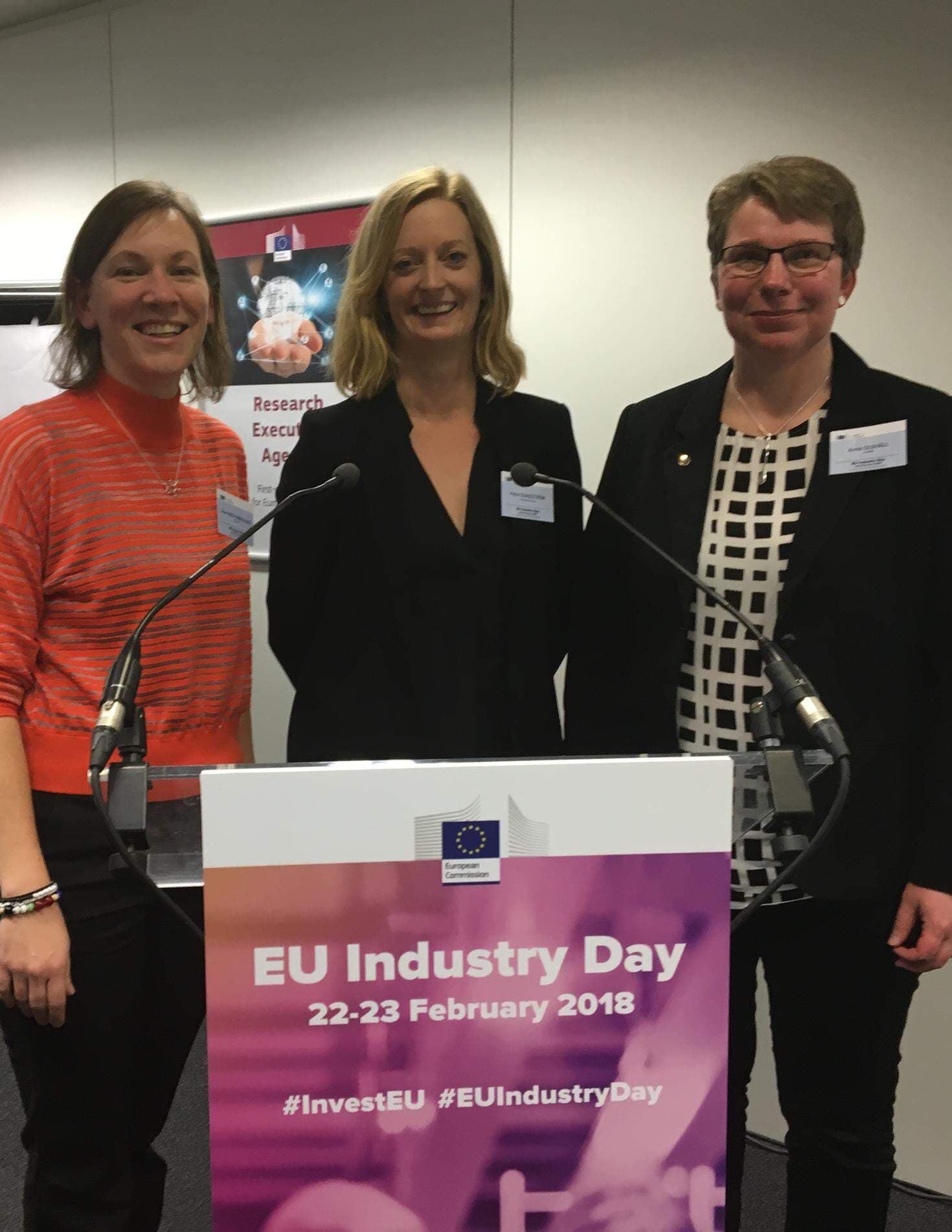The European Commission: Swedish companies best at innovation
Within the framework for the European Commission’s EU Industry Day February 22-23 in Brussels, Teknikföretagen and RISE was chosen to present how Swedish enterprise and academy cooperate around invention under the headline TESTBED Europe, accelerating innovation and strengthening eco-systems. The seminar proved to be one of the events most popular, and gathered experts from all over Europe. The participants all agreed that Sweden is the leading example of innovation, but why?

Mostly it has to do with the fact that large and smaller companies work well together.
- The stakeholders understand that they can work out every issue on their own. Swedish companies are good at working together with others. Small companies can be very innovative and the large one have the experience of going international. At Chalmers they can learn from each other, said Åsa Fasth Berglund, associate professor at Chalmers University of Technology, and made the case for so called testbeds.
Testbeds can facilitate testing opportunities. Small companies can’t always carry the cost, but in a testbed they can take help from students when trying out different inventions. At Chalmers, SMEs, students, researchers and global companies do tests.
Anna Olshäll from Scania also stressed the need for testbeds, which she meant was crucial to the development of future products and services, and absolutely necessary to be able to invest in existing products.
- We need to know enough to be able to use the new technology, and dare to invest. Security and cybersecurity is central for us to be able to take that leap. We have to be able to trust that the information is believable and based on facts, or else it could damage everyone involved. It might also put future production at risk.
Anna Olshäll said that Scania is also open to cooperation with other companies and institutes, reaffirming the idea of cooperation as the model for the Swedish success story. Scania also cooperates with for example Chalmers and The Royal Institute of Technology.
- We need cooperation. We need constant development, within the company but also from external contacts via new partnerships. We therefore send employees to others to share knowledge and discuss challenges yet to be solved. There need to be a connection to reality from the beginning if we are to invest in new research. The cooperation between SMEs and large companies are of the essence.
Petra Sundström, from the Huskvarna Group, called digitalisation a ”game changer” Companies are now a part of an eco-system, wheatear they want to or not. Competition is sharp, and getting sharper. And big actors like Amazon and Google are getting interested in the market niches Swedish companies are successful in.
- “Going digital” has unlimited opportunities. At Huskvarna we work close to our customers; they know what they want and we can find out what we can deliver. That means we show of a lot of different innovations, but when we do we run in to a lot of legal troubles. For example renting out products we might want to take the clients photo. But to have a camera in store we need permission. Another example is if we want to put Wi-Fi in the garden for our digital products, we might need permission for that too. The data protection act is another problematic factor. To be able to develop innovation creating value for the consumers we need exemptions for testbeds in the EU framework.
Petra Sundström also said that they need to be able to try their ideas without being stopped by stiffed necked regulation at the early stages, so they know what works and what needs development. The regulatory burden limits the possibility of creative solutions and smart innovations, often without good reason.
- Planning new products take time, we need an infrastructure. We need to know if there will be 5G in 5 years. We need to try new products in that reality in a testbed. Or rather, we need to think bigger, we need “test cities” for the future.
Only one in five European companies really uses the digital solutions in their companies, which means that four out of five does not. The potential is huge, a European Commission representative from DG Connect stated from the audience. Her first wish is that the EU will get both a national and a European infrastructure for testbeds.
It is important to state that there already is a “best practice” from the Nordic countries. The success factors are:
1. Access to a local “eco system”
2. The latest competence and tools
3. Creative people
4. Access to multiple actors. Connoisseurship is needed to solve future issues.
5. Financing.
6. Stakeholders open to cooperation.
7. A future connection between the national and European system.
The conclusion is therefore: There need to be flexible solutions for cooperation that suits different needs.
The EU Industry Day is an initiative to spread information about the Commission’s work with a strategic policy for enterprise. The conference is also a forum for different stakeholders to share their activities and thoughts to learn from each other and find new opportunities for cross boarder cooperation. The participants come from all sectors of enterprise, as well as finance, research, governments and other political or public offices.